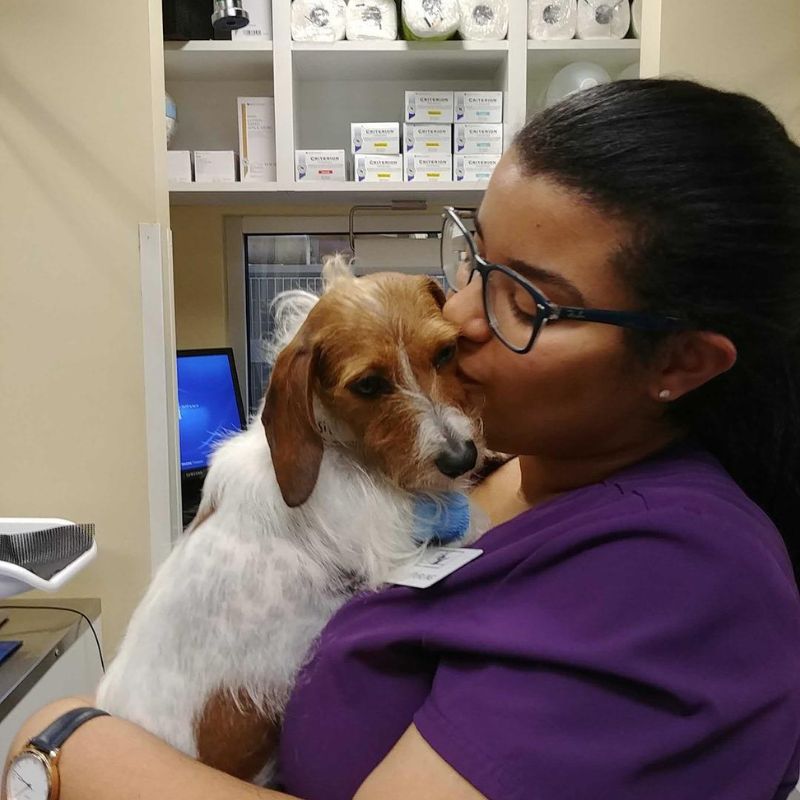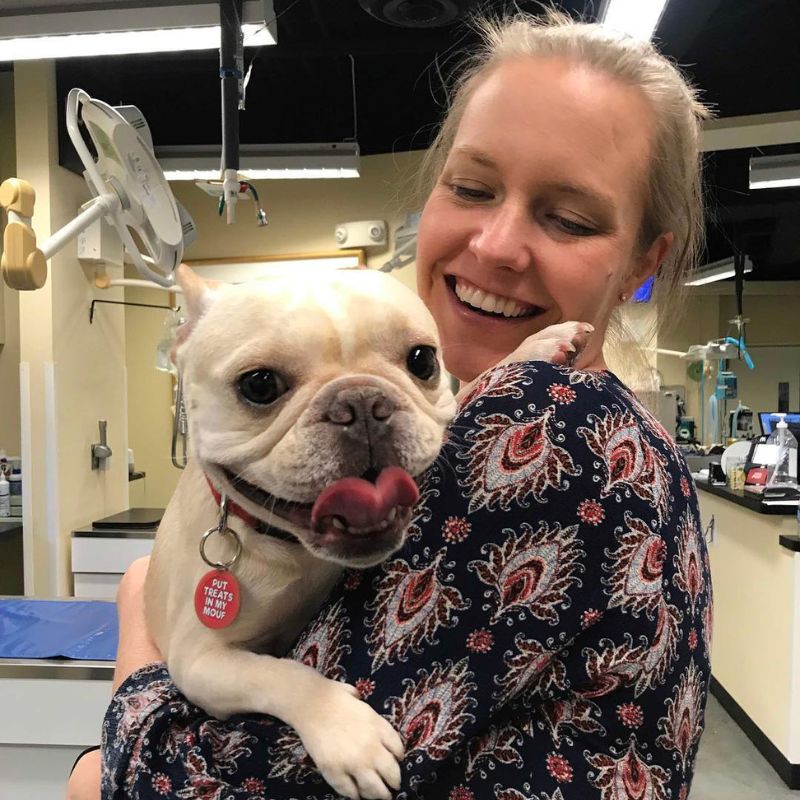Our Service
Pet Vaccinations
Through regular pet immunizations, many diseases that might harm dogs and cats can be avoided. When you initially bring your pet to Peachtree Hills Animal Hospital, we’ll make sure their vaccinations are current and we’ll put them on a schedule to ensure they continue to be current.
Pet Vaccinations
At Peachtree Hills Animal Hospital, we take great pride in providing each of our patients with exceptional individualized care. Our main objective is to prolong the happiness and health of your pet so that you can share many years of happiness together. We emphasize the value of preventative treatment, which includes vaccinations for cats and dogs.
Pet Vaccinations
A number of viral and bacterial illnesses to which cats and dogs may be exposed are shielded from by vaccinations. To protect your pet from diseases that are common in your area, your veterinarian will set up a vaccination schedule for him or her. Kittens and puppies frequently need an initial vaccine followed by booster doses to ensure they are fully protected against infections.
You may help maintain your new friend’s health by adhering to the recommended vaccine regimen. We also recommend having the parasite levels of all dogs and cats examined twice a year and starting them on a monthly parasite preventive.
See below to learn more about vaccines for cats and dogs.
Vaccine schedules can be complicated and confusing and many options for vaccines depend on the lifestyle of your cat and on any medical problems as well.
Core Cat Vaccines – These are the two core vaccines that we feel all cats should receive:
- FVRCP (which is a combination vaccine of rhinotracheitis, calici, and panleukopenia (or feline distemper).
- Rabies: Rabies is our only vaccine that is regulated by the state and county.
Which diseases do these vaccines treat?
- Rhinotracheitis (the R in FVRCP) – This is a herpes virus and is part of the “Upper Respiratory Complex”. It can cause fever, anorexia, sneezing, discharge from the nose and/or eyes and coughing. This virus will remain in a cat’s body for the rest of its life and later cause disease of the cornea or reoccurrence of other symptoms.
- Calici (the C in FVRCP) – This is a calicivirus and is another part of the “Upper Respiratory Complex”. It can cause fever and ulcers on the tongue and mouth.
- Panleukopenia (the P in FVRCP) – Also referred to as “Feline Distemper”, this disease is caused by a parvovirus. This virus causes a significant decrease in white blood cells which are needed to fight off infection. It can cause severe diarrhea, vomiting, anorexia and fever. Cats who survive usually don’t have any lasting problems. The virus is highly contagious, and vaccination is an effective prevention.
- Rabies –Rabies is a very serious disease transmitted by saliva either by bite wounds or saliva contact with open wounds. Incubation from time of exposure to symptoms is usually 3-6 weeks but can be as long as 6 months. It attacks brain cells and causes neurologic symptoms. Once an animal gets rabies it is always fatal. Vaccination for rabies is required by state law for dogs and in many communities keeping cats up to date with the rabies vaccine is also required.
Non–core vaccines – This vaccine is based on lifestyle and exposure:
- FELV (which is feline leukemia and is recommended only for outdoor cats).
What disease does this non-core vaccine treat?
- Feline Leukemia – The FELV vaccine is given at 12 weeks, boostered at 16 weeks and then boostered yearly as indicated. The Feline Leukemia virus affects the cat’s bone marrow and therefore its ability to fight off infection. It can cause weight loss, gingivitis/stomatitis, lethargy, chronic infections (especially upper respiratory infections), fever and in some cases even lymphoma (cancer of the lymph nodes). It is important to let us know if your cat is going to be indoors or outdoors. There is a 1 in 10,000 chance your cat will get an aggressive sarcoma tumor at the vaccine site. If your cat is indoor-only, then there is a much less chance of getting FELV than the cancerous tumor. Therefore this vaccine is NOT recommended for strictly indoor cats. If you are unsure, please discuss it with us. However, this vaccine is recommended for kittens because they have the highest chance of escaping your house and are also the most susceptible to FELV at a young age. Many times we do not continue this vaccine after their kitten vaccines.
Vaccine schedules can be complicated and confusing and many options for vaccines depend on the lifestyle of your dog and on any medical problems as well.
Core Dog Vaccines – These are the two core vaccines that we feel all dogs should receive:
- DHLPP (which is a combination vaccine of distemper, hepatitis, leptospirosis, parainfluenza, and parvo). Adult dogs are moved to DHLPP every 3 years after the age of one year old.
- Rabies: Rabies is our only vaccine that is regulated by the state and county.
What diseases do these core vaccines treat?
- Distemper (the D in DHPP) – This disease is a paramyxovirus, which is similar to human measles. It can cause fever, poor appetite, pneumonia and can continue on to cause neurologic symptoms (which can be permanent) and death. It is transmitted mainly through saliva but can be potentially transmitted through any secretion.
- Hepatitis (the H in DHPP) – This disease is caused by an adenovirus. It primarily causes liver failure but can also affect the eyes and kidneys. The symptoms can include vomiting, diarrhea, changes in the cornea of the eye and even death. It is transmitted by bodily fluids, especially nasal discharge and urine.
- Leptospirosis — This is a bacterium that is found in many types of outdoor environments. There are over 200+ strains for this bacterium. The vaccine does not cross-protect (basically each strain needs its own vaccine). The symptoms can be kidney or liver failure, severe lethargy, fever, lack of appetite, vomiting, diarrhea and increased drinking/urination. Permanent kidney damage or death can also occur. It is transmitted through urine, with contaminated water a likely source. This can be transmitted from dogs to humans; therefore it is considered a zoonotic disease.
- Parainfluenza (the first P in DHPP) – The parainfluenza virus is one of several agents that can be part of the tracheobronchitis (kennel cough) disease. This virus causes mild disease unless combined with another virus or the Bordetella bacteria. It causes a dry hacking cough and watery nasal discharge but can progress to pneumonia. If left untreated it can even cause death. It is transmitted by saliva and nasal discharge.
- Parvo (the second P in DHPP) – This virus can cause severe, bloody diarrhea, severe dehydration, electrolyte imbalances and frequently death. It is transmitted through the feces. This virus is very hardy and can live in the environment for months under the right conditions.
- Rabies –Rabies is a very serious disease transmitted by saliva either by bite wounds or saliva contact with open wounds. Incubation from time of exposure to symptoms is usually 3-6 weeks in the dog but can be as long as 6 months. It attacks brain cells and causes neurologic symptoms. Once an animal gets rabies it is always fatal. Vaccination for rabies is required by state law for dogs and in many communities keeping cats up to date with their rabies vaccine is also required. There is a 1-year and a 3-year vaccine. It will depend on the county in which you are living to which one the county requires.
Non–core vaccines – These three vaccines are based on lifestyle and exposure:
- Bordetella — Bordetella is done yearly for those dogs boarding and grooming.
- Influenza –Canine flu is done once a year for those dogs boarding and grooming.
- Leptospirosis –This vaccine is suggested for outdoor frequent dogs.
What diseases do these non-core vaccines treat?
- Bordetella (also known as Kennel Cough) – This disease is usually caused by more than one virus and/or bacteria. Usually Bordetella bacteria and Parainfluenza virus are the main culprits. However, Herpes virus, Distemper and several other viruses can also be involved. The disease is spread by nasal discharge or fomites. This vaccine goes into the nose instead of being injected under the skin.
- Influenza (H3N8) – This vaccine works for this strain of Influenza only. Our current outbreak is related to the H3N2 strain and therefore this vaccine is only recommended for those boarding facilities that are requiring it.
- Leptospirosis — This is a bacterium that is found in many types of outdoor environments. There are over 200+ strains for this bacterium. The vaccine does not cross-protect (basically each strain needs its own vaccine). The symptoms can be kidney or liver failure, severe lethargy, fever, lack of appetite, vomiting, diarrhea and increased drinking/urination. Permanent kidney damage or death can also occur. It is transmitted through urine, with contaminated water a likely source. This can be transmitted from dogs to humans; therefore it is considered a zoonotic disease.
Our Veterinary Services
Below are our all services we offer.
Pet Bi–annual Wellness Exams
Pet Dentistry
Pet Diagnostic Imaging
Pet Laboratory
Pet Behavioral & Dietary Counseling
Pet Parasite Prevention
Pet Acupuncture
Pet Senior Pet Care and Hospice
Pet Surgical Services
Pet Vaccinations
Pet Televet
Pet Microchipping
Pet Advanced Diagnostic Procedures


